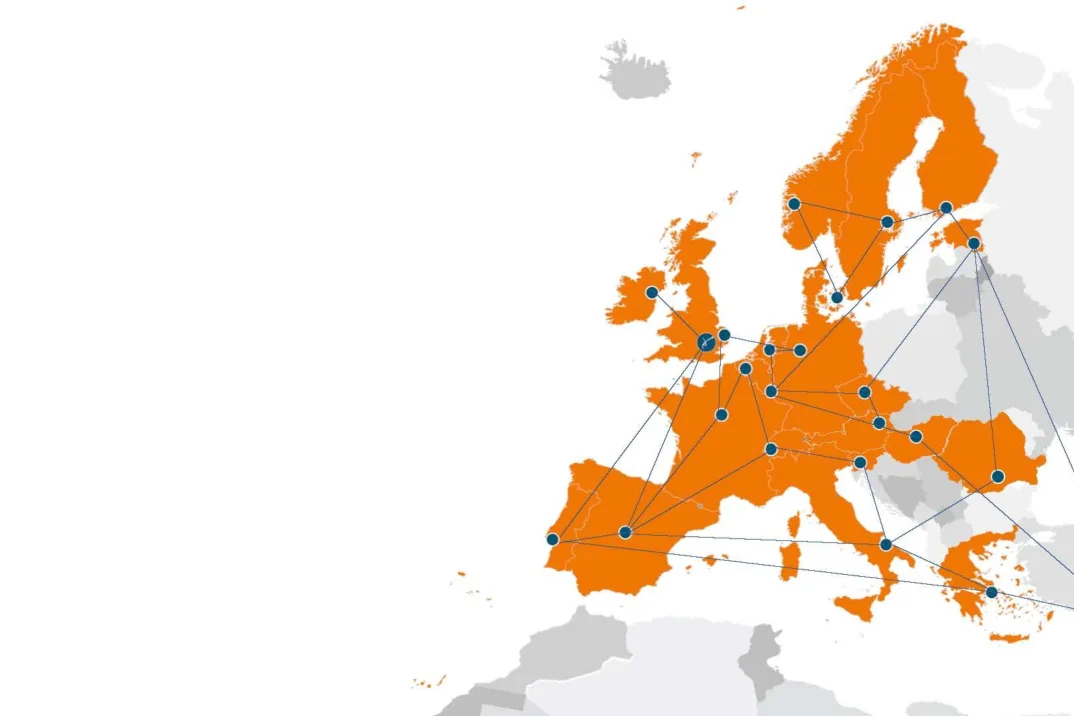ELIXIR 10-year jubilee
ELIXIR, the European infrastructure for biological data, celebrates its 10-year jubilee in 2024. With its current five-year scientific programme, it is moving closer to societal challenges. And from March 2024, it will have a new Director: Prof. Tim Hubbard.

18 December 2013 marked the official birth of ELIXIR as an intergovernmental organisation. On this day, five member countries - including Switzerland - ratified the ELIXIR agreement. Over the past ten years, ELIXIR has facilitated access to life sciences data for researchers in ELIXIR member states and beyond, accelerating research in this field.
Data on a million people
Since 2014, ELIXIR has coordinated several major European projects. One of the most recent examples is the European Genomic Data Infrastructure (GDI). Launched in November 2022, this four-year project will receive EUR 40 million in funding from the European Commission. The aim of the project is to build an infrastructure that will provide researchers with access to the genomes of one million Europeans together with information about these individuals, such as their health status.
This data is very sensitive and must not be stored centrally, but must remain on servers in the countries of origin. It can only be accessed very selectively. The raw data may be used for analyses but cannot be exported. This data infrastructure must satisfy very stringent requirements and will have many interfaces.

New scientific programme starting in 2024
In early 2014, ELIXIR launched its first five-year scientific programme. Ten years later, ELIXIR’s Scientific Programme for 2024–2028 has now begun.
With this scientific programme, the third so far, ELIXIR moves closer to societal challenges. Biodiversity, food security and pathogens have been added to the list of thematic priorities. Molecular sciences can offer powerful solutions to address all three of these challenges. Access to and sharing of relevant data is therefore essential for successful research. The fact that these new thematic priorities have been added to ELIXIR's activities may therefore be seen as good news for all researchers working in these areas.
The new programme will reinforce existing thematic areas such as human genomics. Efforts to integrate ELIXIR nodes will also be continued. In addition, Open Science principles will be encouraged to enable everyone to gain access to research findings, thus ensuring that society derives greater benefits from these findings. ELIXIR will assist its members in implementing Open Science principles and will also help them to work with industry.
New Director

In March 2024, Prof Tim Hubbard will take over as Director of ELIXIR. He holds a professorship in bioinformatics at the Department of Medical and Molecular Genetics at King's College London. As Director, he succeeds Niklas Blomberg, who has successfully led ELIXIR since 2014.
What is your motivation in becoming Director of ELIXIR?
Having been involved in the planning processes for European-wide projects and developments such as ‘Beyond one million genomes’ (B1MG), I think the role is an exciting opportunity to contribute to their implementation. In addition, as a member of the original 2005 Expert Group that drew up the initial proposals for biological infrastructures, I’ve always been committed to the ELIXIR mission.
What are the big challenges ahead of ELIXIR in the coming years?
It is clear that artificial intelligence (AI) will have a major impact on both basic biological research and translational research in fields such as healthcare. One big challenge for ELIXIR is to ensure coordination and standards across the network of ELIXIR Nodes to fully leverage the opportunities and benefits of AI.
What are your goals for ELIXIR?
ELIXIR has just published its Scientific Programme for 2024-2028 and one priority area is human data and translational research. Here I see opportunities for ELIXIR to encourage better interoperability with healthcare data across Europe.
Given privacy concerns, this will require developing infrastructure that supports new ways of working securely with nationally held datasets. I see the coordination across Europe and in individual countries as critical. In Switzerland, for example, the Swiss Institute of Bioinformatics (SIB) is a leader in the field. I want to connect these national efforts into European-wide activities.
What is ELIXIR?
ELIXIR is the European infrastructure for biological data. It is organised as a decentralised infrastructure with 23 members (22 national hubs in member states and the European Molecular Biology Laboratory EMBL). ELIXIR’s central hub is located in Hinxton (United Kingdom). The various nodes operate databases and analytical tools on which life sciences research depends. The Swiss Institute of Bioinformatics (SIB) is the Swiss node and was one of the driving forces in the development of ELIXIR.
Contact
Author



